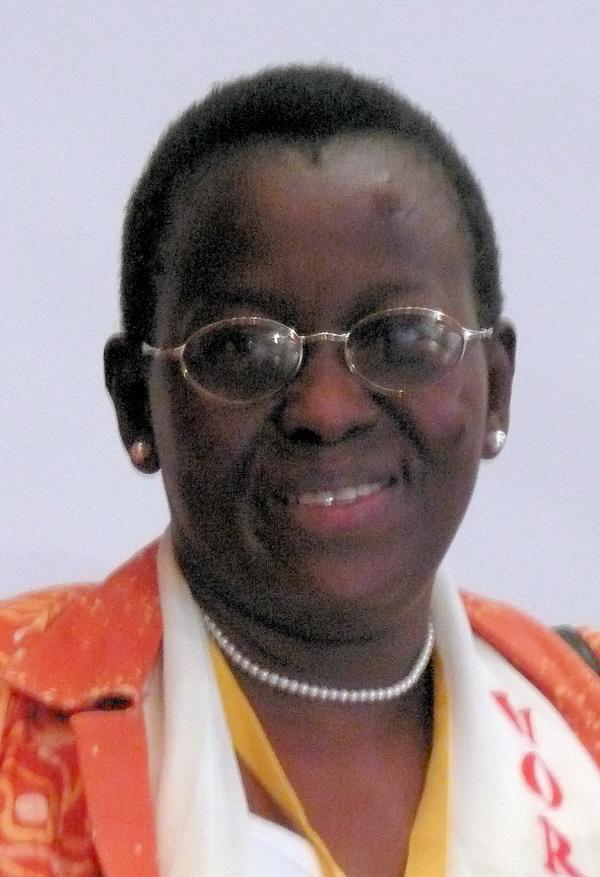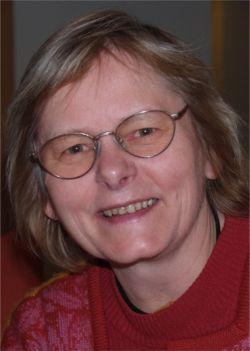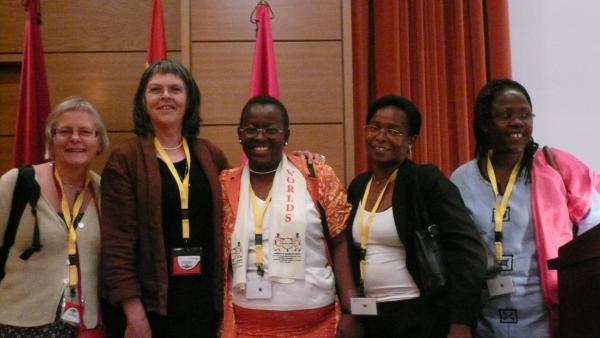The Women’s Worlds 2008 conference in Madrid attracted around 2500 researchers and activists from all over the world. One of the semi-plenary sessions was organized by the University of Tromsø, Norway, together with the University of Makerere, Uganda.
In 2007 gender researchers at the two universities got funding from NUFU, Norwegian Programme for Development, Research and Education, to set up a research collaboration project. The theme was gender, poverty and social transformation in Uganda, and the initiators were Lise Nordbrønd and Grace Bantebye.
– The idea of the project is to look at the interconnection between gender, poverty and social transformation, explained Grace Bantebye, who started off the session.
– How can social transformation be achieved and how is it related to issues such as gender equality, economic rights and poverty?
Common platform

The project comprises several individual research projects that will be carried out during the project period. In addition to this, the partners aim to create a common platform for exchanges and theoretical discussions. The importance of making the collaboration as equal as possible, truly valuing the contributions from all partners in the project, was underlined by Siri Gerrard, University of Tromsø.
– Research collaboration between countries in the North and the South should not be based on knowledge transfer, but on knowledge exchange. We need to learn from each other. It should not be a question of us here in the North telling the researchers in the South how things should be done, or what real gender equality is. The researchers of the North are perhaps the ones that most of all need dialogues and knowledge exchange.
But putting these ideals into practice and finding good ways of collaborating can be challenging.
Agree to disagree
When researchers from different countries, men and women with different social and cultural backgrounds, carry out a research project together, they have to discuss and agree upon a number of things that are fundamental for the project. They must establish an understanding why, when and in what way the collaboration should take place. In which phases of the project is collaboration most useful?

– Both the main research question as well as the concepts must be discussed and defined jointly, Siri Gerrard explained. If you are going to do research on poverty, you must reach an agreement on what poverty is based on the different contexts where the research is carried out. Does it mean the same thing in all of the participating countries? And what about other central concepts – gender, ethnicity, well-being?
– Sometimes it might be best to agree on disagreeing. Otherwise it is difficult to become equal partners, if fundamental issues are not openly discussed or if one understanding of central concepts dominates over the others.
Researching the North?
Another aspect that is important in order to make the partnership equal, according to Siri Gerrard, is to maintain long term collaborations.
– When we work together for an extended period of time, we get to know a lot of things about each other’s culture. This is necessary in order to create a well-functioning cooperation and to find good ways of changing society. The challenges become clearer, but we also get better tools for solving them.
In most collaborative projects between the North and the South, the majority of the research is done on the South. That this NUFU-project is focused on social transformation in Uganda, is thus typical. But Siri Gerrard argued that there is a need for doing research also on the North in these kinds of projects. Knowledge about the relations between gender, property rights and globalization, for example, could give us a better understanding of poverty processes when both southern and northern countries are in focus.
– If we don’t point the arrow to the North, and let researchers from the South give their perspectives on us, and the society we live in, the research continues to be very Western-centric and westernized, she proclaimed. To change this could in the long run lead to a more equal relationship between research and researchers in the North and the South.
Gender and economic rights
In the presentations that followed, the audience got to know more about the research that is carried out within the project. Josephine Ahikire, from the University of Makerere, talked about land ownership in relation to gender. One of her main points was that the question of economic rights ought to be separated from the question of poverty.

– Documentation shows that women play an important part in the African economy. Their initiatives in for example trade projects have lead to an increased economic independence. But this is not enough, she argued. Even if women in that way create alternative means of livelihood, they do not really challenge the economic system and existing inequalities.
– Land rights constitute an important question of its own – regardless of the question of poverty. Even if women do find alternative means of livelihood, economic rights must still be discussed in relation to social transformation and gender equality.
Sexuality and well-being
Florence Kyoheirwe Muhanguzi, also from the University of Makerere, discussed the connections between sexuality and poverty.
– What consequences does poverty have for sexual life, she asked. And what consequences does sexual life have for poverty?
She stressed that these issues have implications for women’s well being and gender equality in Uganda. Poverty may encourage early sexual activities, and lead to engagement in humiliating patron-client relationships. And sexuality and sexual life do also, in various ways have effects on productivity, for instance in regard to reproductive health and sexually transmitted diseases.
– But we must not only pay attention to the negative sides of sexuality, Florence Kyoheirwe Muhanguzi argued.
– That has often been the case, particularly in an African context. There are also important positive aspects of sexuality, both health related and in relation to women’s well-being. These aspects should not be forgotten.
The need to give attention not only to the problems that exist in the Ugandan society, and Africa in general, but also to the positive aspects and promising changes that have taken place, was further accentuated in the discussion that concluded the session.
The project comprises four researchers from Uganda, two from Norway and four PhD students. It is funded by NUFU and lasts from 2007-2011 and the research coordinator is Lise Nordbrønd, University of Tromsø.
Lise Nordbrønd is director of KVINNFORSK, the Centre for Women and Gender Research, at the University of Tromsø. Grace Bantebye is ass. professor at the Department of Gender Studies, university of Makerere. Siri Gerrad is ass. professor at the Department of Planning and Community Studies University of Tromsø. Josephine Ahikire is senior lecturer at the Department of Women and Gender Studies at Makerere and a visiting scholar at the University of Oldenburg in Germany. Florence Kyoheirwe Muhanguzi is a Programme officer at the Department of Gender Studies, University of Makerere.
